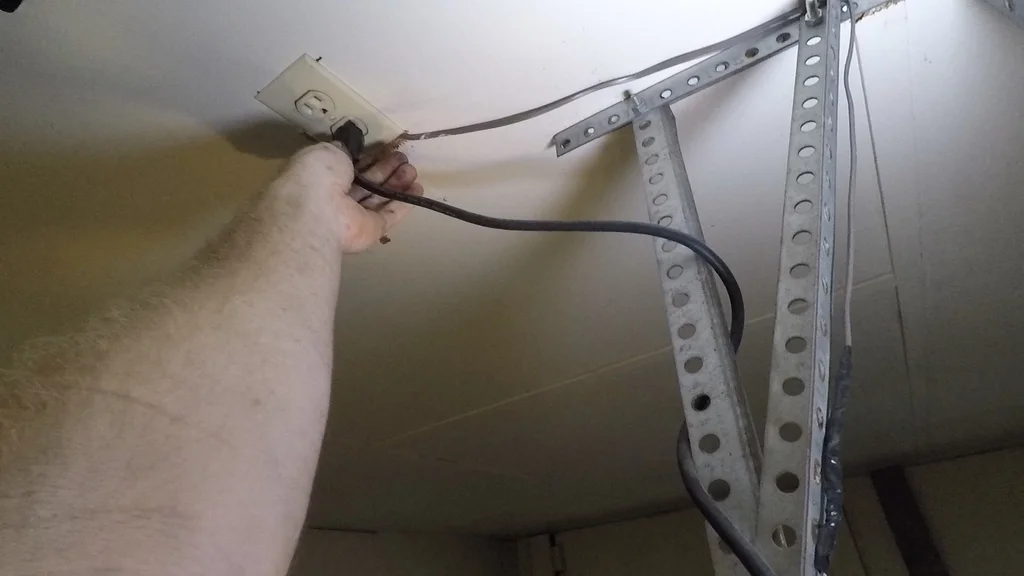What Happens If I Unplug My Garage Door Opener?
Imagine the scenario: you need to unplug your garage door opener for some reason. But have you ever wondered what would happen if you actually did unplug it? Would your garage door still function? In this article, we will explore the consequences of unplugging your garage door opener and shed light on what you can expect when you take this step. Understanding the effects of unplugging your garage door opener will help you make an informed decision and ensure the continued convenience, security, and functionality of your garage.

Overview of a Garage Door Opener
Before we dive into the consequences, let’s first understand what a garage door opener is and how it works. A garage door opener is a motorized device that automates the process of opening and closing your garage door. It consists of various components, including a motor, a drive system, and a control mechanism. These elements work together seamlessly to provide you with the convenience of effortlessly operating your garage door.
Functioning of a Garage Door Opener
To grasp the effects of unplugging your garage door opener, let’s take a closer look at how it functions. When you press the button on your remote control or wall-mounted keypad, a signal is transmitted to the opener. The motor then activates, driving the mechanism that lifts or lowers the garage door. Furthermore, modern garage door openers come equipped with safety features such as sensors that detect objects in the door’s path and an auto-reverse mechanism to prevent accidents.
Consequences of Unplugging a Garage Door Opener
So, what happens if you unplug your garage door opener? First and foremost, your garage door will lose its automatic functionality. You won’t be able to operate it using the remote control or keypad. Instead, you’ll have to manually open and close the door. While this may not seem like a major inconvenience at first, it can quickly become tedious, especially if you have a heavy garage door.
Another significant consequence of unplugging your garage door opener is the potential impact on security. When the opener is unplugged, the automatic locking mechanism provided by the opener is disabled. This means that your garage door will no longer automatically lock when it is closed, potentially leaving it vulnerable to unauthorized access.
However, it’s important to address a common misconception here. Some believe that unplugging the opener will make the garage door completely inoperable, thereby enhancing security. Unfortunately, this is not the case. Determined intruders can still manually lift the garage door or find other ways to gain access to your garage.
Precautions and Safety Measures
If you find yourself needing to unplug your garage door opener, it is crucial to take certain precautions to ensure safety and maintain functionality. Before proceeding, consult the manufacturer’s instructions or seek professional advice to ensure you follow the proper procedures. Additionally, manually lock your garage door to enhance security during the time when the opener is unplugged. Regular maintenance and inspections of your garage door and opener are also essential to identify any issues and ensure optimal performance.
In situations such as power outages or when performing maintenance on the opener, having alternative solutions in place can be beneficial. Some garage door openers feature a manual release handle, allowing you to operate the door manually when there is no power. Additionally, consider investing in a backup power supply, such as a battery backup system, to keep your garage door opener functional during power disruptions.
Troubleshooting and FAQs
To address common concerns related to garage door openers, here are answers to frequently asked questions:
Yes, you can still manually operate your garage door even if the opener is unplugged. Most garage doors have a manual release mechanism that allows you to disengage the opener and operate the door manually by lifting or lowering it.
In most cases, you won’t need to reset your garage door opener after it has been unplugged. Once you plug it back in, it should resume its normal operation. However, it’s always a good idea to consult the manufacturer’s instructions or contact their customer support if you encounter any issues.
Unplugging your garage door opener does come with certain risks. The main risk is the potential compromise of your garage’s security, as the automatic locking mechanism provided by the opener is disabled. It’s important to take additional security measures, such as manually locking the door, to mitigate this risk.
No, once the opener is unplugged, the remote control will no longer be able to operate the garage door. You will need to manually open and close the door until you plug the opener back in.
If your garage door is partially open and you unplug the opener, it will remain in that position until you manually close it. You can use the manual release handle to operate the door and bring it to the desired position.
Conclusion
Unplugging your garage door opener has various consequences that can impact the convenience and security of your garage. While you can still manually open and close the door, the automatic functionality provided by the opener will be disabled. It’s important to be aware of these consequences and take necessary precautions, such as manual locking, to ensure the security of your garage.
Before unplugging your garage door opener, consult the manufacturer’s instructions and consider alternative solutions like backup power supplies to maintain functionality during power outages. Regular maintenance and inspections of your garage door and opener are also essential for optimal performance.
By understanding the effects of unplugging your garage door opener and taking appropriate measures, you can make informed decisions that prioritize convenience, security, and functionality for your garage.



Leave a Reply